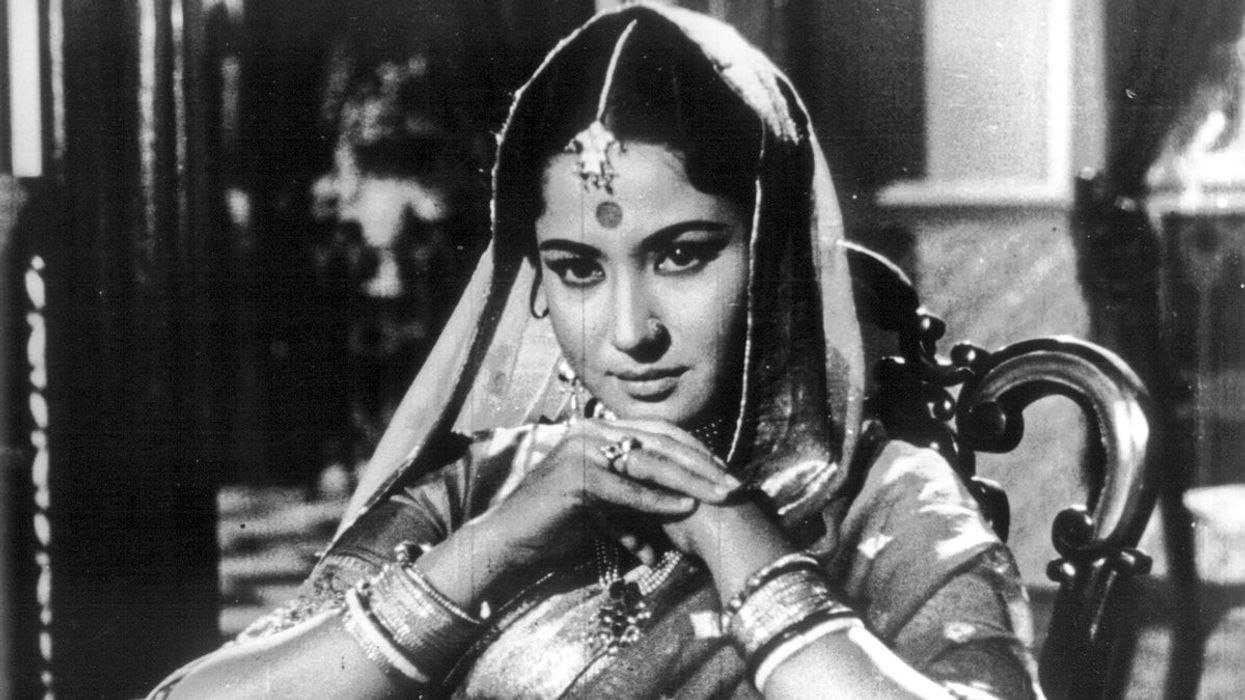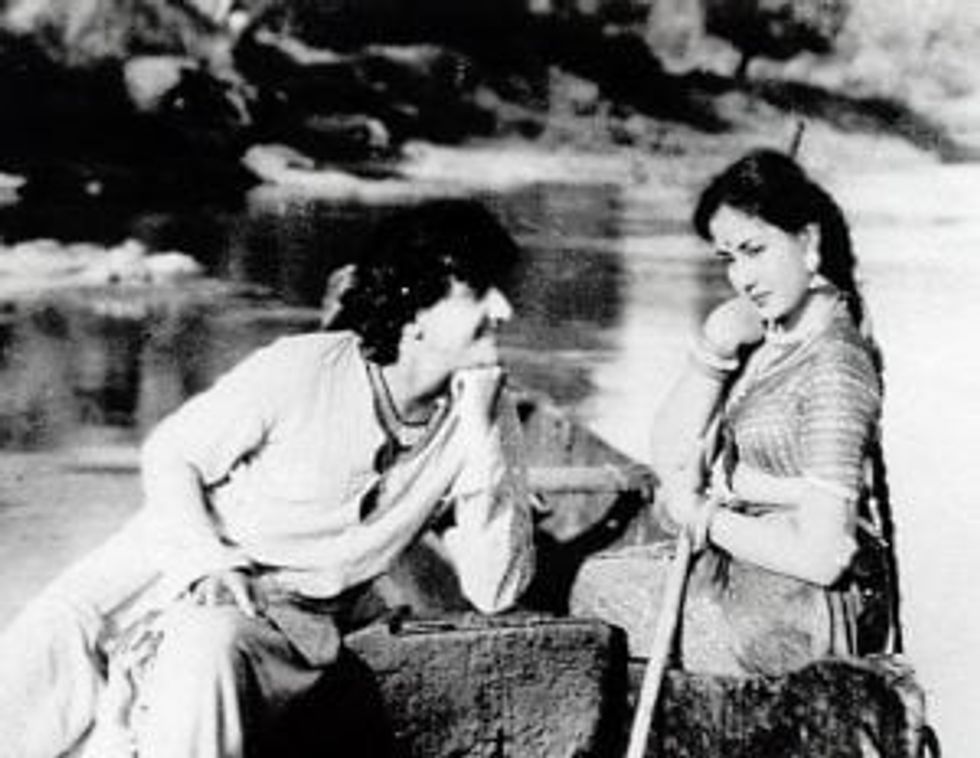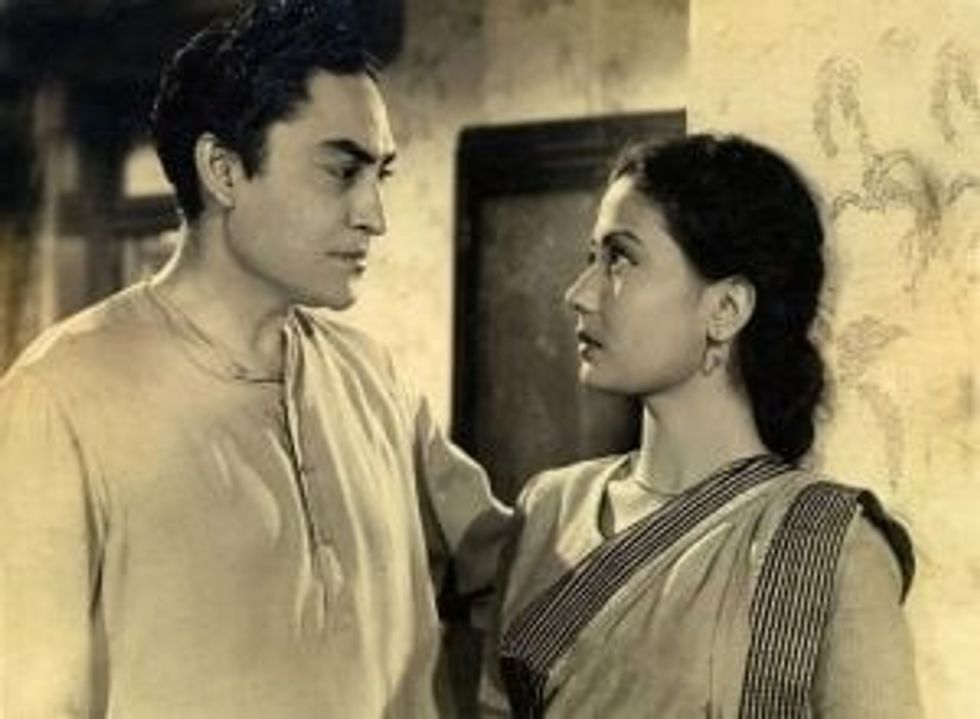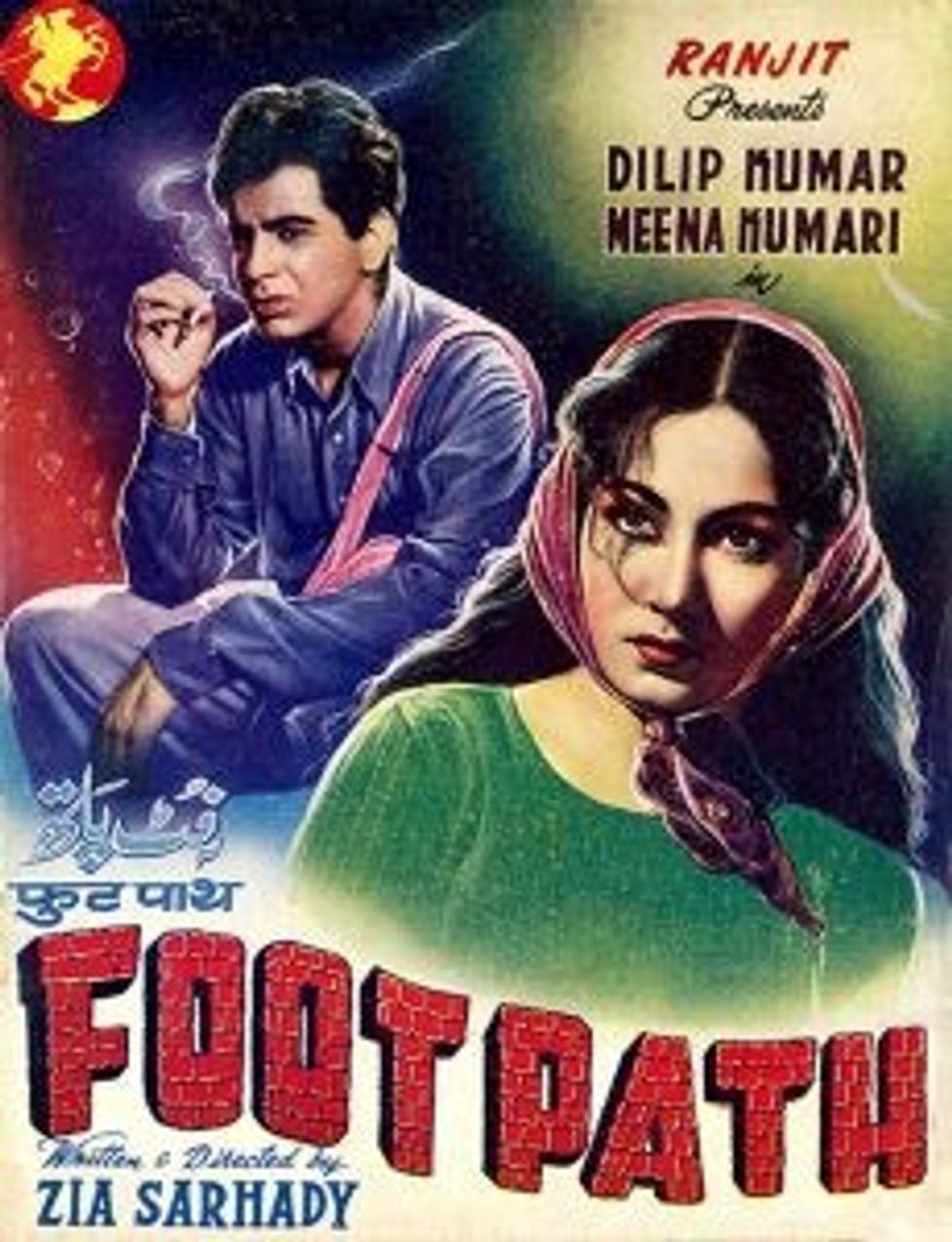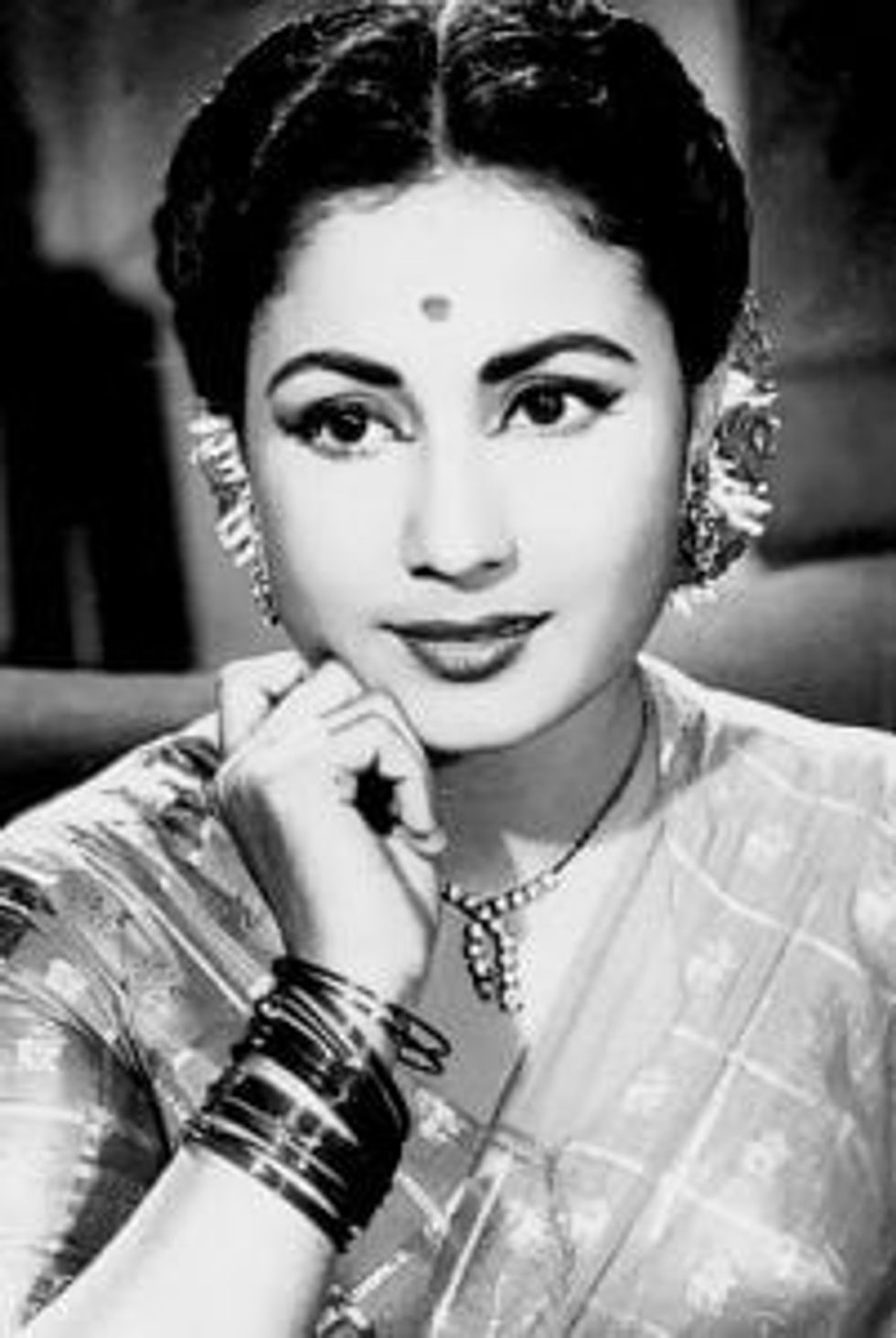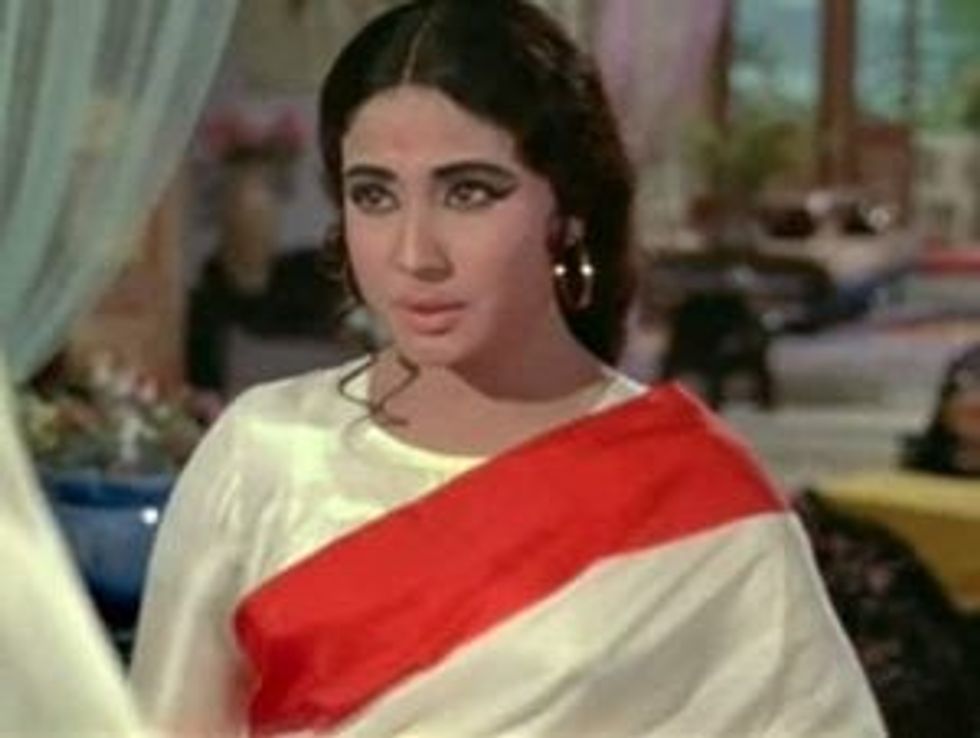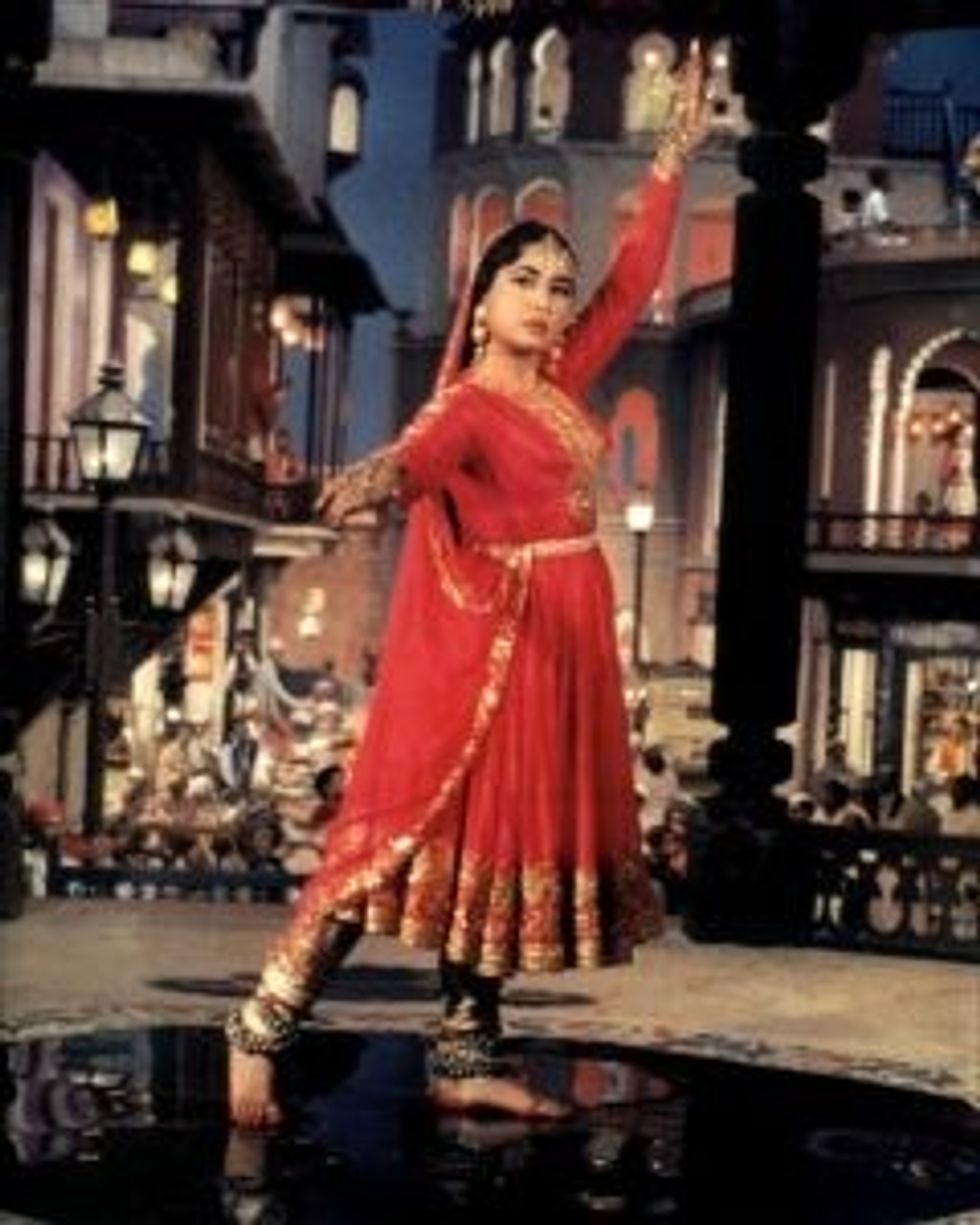ANNIVERSARY SPECIAL TO CELEBRATE THE BEST WORK OF HINDI CINEMA’S GREATEST TRAGEDY QUEEN
by ASJAD NAZIR
SHE may have only been 38 years old when she passed away on March 31, 1972, but Meena Kumari left a remarkable body of work and is widely regarded by many as the most technically gifted A-list actress in Bollywood history.
The multi-award-winning icon raised the level of performances and influenced many leading ladies, who followed in her giant footsteps.
To mark the death anniversary of the late great star, Eastern Eye presents her top 12 films, presented in chronological order, which should be revisited.
Baiju Bawra (1952): Meena Kumari made a name for herself as a child star and scored her first big success as a leading lady with this blockbuster hit. Although this iconic musical was very much about two warring male musicians, she has a key role as the devoted love interest of the lead. She would win the first ever Filmfare Best Actress award for her performance in a movie that scored big at the box office.
Parineeta (1953): Most modern-day audiences will know about the 2005 Bollywood movie adaptation of Sarat Chandra’s 1914 novella starring Vidya Balan and Saif Ali Khan, but this classic was the finest version of it. The cross-class romantic drama was a huge success and at the heart of it was a wonderful performance from Kumari, which won her the second ever Filmfare Best Actress award.
Footpath (1953): Bollywood’s arguably two most technically gifted A-list stars Dilip Kumar and Meena Kumari played the lead roles in this powerful drama set in the underbelly of a big bustling city.
The story weighs up wanting wealth to escape abject poverty versus doing the right thing. The characters and themes covered in this acclaimed drama would find their way into many subsequent films that followed.
Miss Mary (1957): This is a rare comedy starring an actress most associated with deeply emotional dramas and tragedies. She plays a down-on-her luck woman, who pretends to be the wife of an unemployed teacher, so he can get a job. While living a pretence, the bickering pair start falling for one another. This is another film that would influence movies in subsequent decades.
Dil Apna Aur Preet Parai (1960): The romantic drama, which would later inspire 2003 Bollywood film Armaan, is a simple story of a doctor who falls in love with a nurse, but he is obligated to marry someone else. Raaj Kumar and Meena Kumari have sparkling chemistry as the co-workers who love one another, but they are torn apart by outside forces and must find a way back.
Sahib Bibi Aur Ghulam (1962): Although Pakeezah is her career-defining role, many would argue her performance in this all-time classic is perhaps her finest. Kumari is superb as an upper-class woman descending into alcoholism and tragedy in the big-screen adaptation of a classic novel. The classic won multiple honours, including a Filmfare Best Actress award for Meena Kumari, and was unlucky not to make the Oscar’s shortlist. At the 1963 Filmfare Awards, the remarkable actress had all three Best Actress nominations, including for this film.
Dil Ek Mandir (1963): The remake of Tamil film Nenjil Or Aalayam (1960) is an interesting romantic drama about a woman whose husband has cancer and is being treated by her former lover. With both men desperately in love with her, what follows is a unique romantic triangle that weighs up duty versus desire. She would get yet another Filmfare Best Actress nomination for her wonderful performance in the film.
Kaajal (1965): The naturally gifted performer won yet another Filmfare Best Actress award for her terrific turn as a heartbroken woman marrying a man who is not all he seems. The multi-layered drama saw her deliver another deeply emotion-filled role that captured the hearts of audiences and would later inspire many TV dramas. The film has many standout moments that are still popular today.
Phool Aur Patthar (1966): Although the highest grossing film of 1966 is best remembered for the path-breaking scene of Dharmendra removing his shirt, Meena Kumari very much had top billing and garnered herself another Filmfare Best Actress nomination. She plays a devastated widow, who melts the heart of a career criminal and forms a unique bond with him. This is another massively influential film that would inspire writers to create similar stories in subsequent decades.
Majhli Didi (1967): This often-forgotten classic was actually India’s entry to the 41st Academy Awards for Best Foreign Language Film and based on a story written by acclaimed author Sarat Chandra. Kumari portrays an educated city girl who marries into a very traditional family and gets caught up in the crossfire of family politics.
Mere Apne (1971): The A-list actress was just in her thirties when she did the unthinkable and played an old lady in this drama, heavily inspired by National Award-winning Bengali film Apanjan (1968). The directorial debut of acclaimed writer-director Gulzar had a strong supporting cast of future stars like Vinod Khanna.
Pakeezah (1972): Last, but not least, is Meena Kumari’s career-defining film, regarded as one of the greatest ever made in Bollywood. The colourful courtesan drama, which took 16 years to complete, sees her play the double role of a courtesan and her daughter, who grows up in the same circumstances. The multi-layered film has colourful costumes, great music, unforgettable dialogues and the last great masterful turn from Bollywood’s greatest tragedy queen, who remains alive through her wonderful work.
